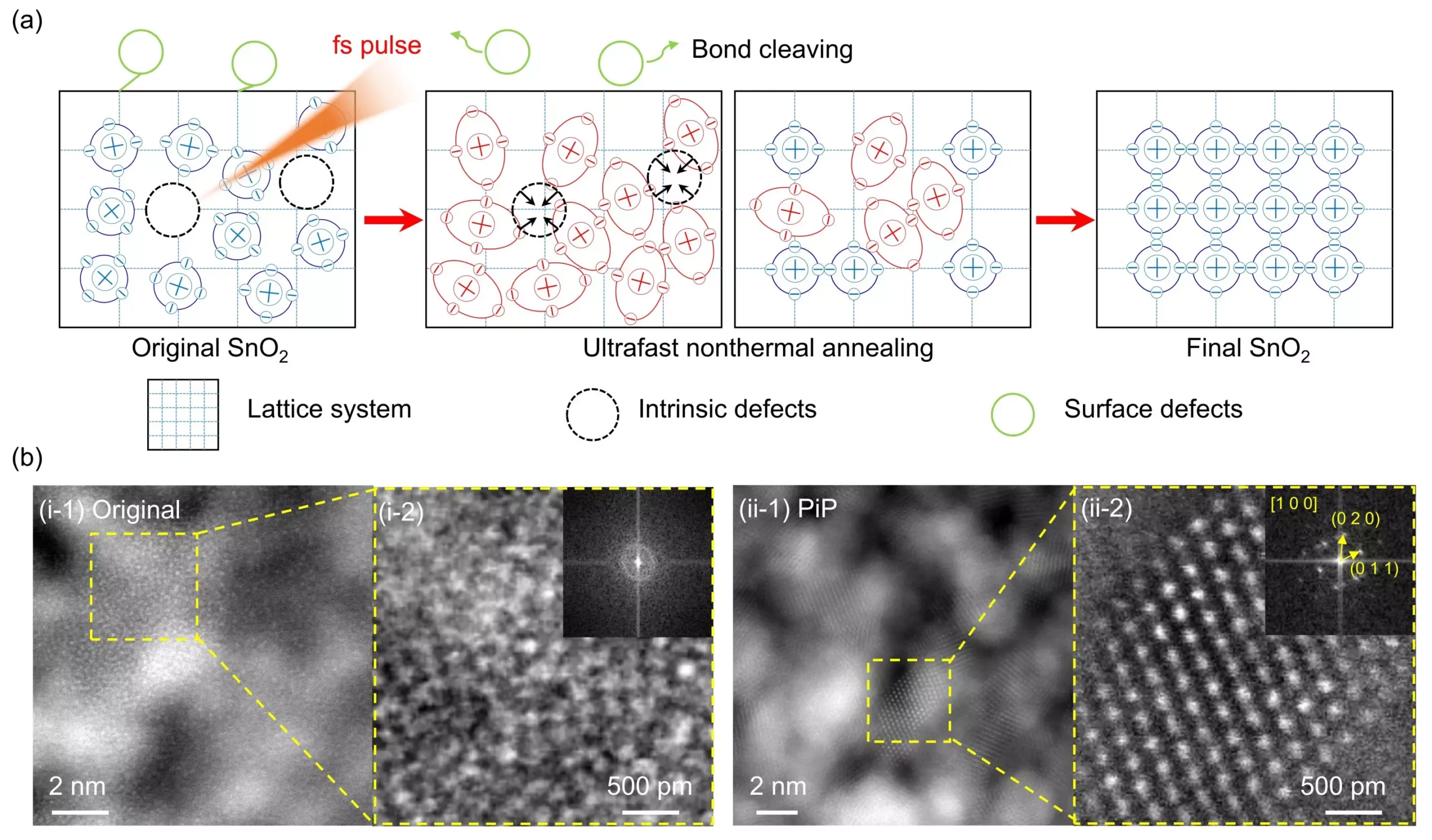

SnO2 has long been recognized as a crucial component in the development of efficient perovskite solar cells (PSCs) due to its exceptional properties such as high transparency, electron mobility, and band alignment. However, despite its advantages, SnO2 has been plagued by intrinsic and surface defects that can lead to carrier recombination issues at the SnO2/perovskite interface. Traditional methods of defect passivation, such as thermal annealing and interface modification, have proven to be time-consuming and energy-intensive, posing challenges for flexible substrates. In response to these issues, the Center of Femtosecond Laser Manufacturing for Advanced Materials and Devices at Wuhan University of Technology introduced a novel approach known as Photoexcitation-Induced Passivation (PiP) to address the shortcomings of conventional techniques.
The PiP strategy involves the use of a home-built femtosecond laser annealing system equipped with a high-power femtosecond laser and a polygon scanning head. This system enables rapid annealing of SnO2 nanoparticles, with scanning speeds of over 100 m/s, allowing for efficient treatment of samples. High-resolution transmission electron microscope analyses conducted before and after the PiP process revealed a transformation of the SnO2 from an amorphous phase to a crystalline phase, leading to improved crystallinity. Additionally, surface and optoelectronic characterization techniques demonstrated enhanced defect passivation of the SnO2 film post-PiP treatment.
The benefits of the PiP technique extend beyond enhanced crystallinity and defect passivation. Researchers observed that the ultrafast excitation induced by the femtosecond laser led to significant improvements in the overall performance of PSCs. Multiple perovskite absorber layers were tested, showcasing the technique’s versatility and compatibility with various materials. The team successfully fabricated representative PSCs with impressive power conversion efficiencies (PCE) of 24.14% and 22.75%, respectively. Furthermore, the scalability of the PiP technique was demonstrated through the creation of perovskite solar modules consisting of multiple subcells, achieving a notable PCE of 20.26%.
The development of the PiP strategy represents a groundbreaking advancement in the field of solar cell technology. By providing a more efficient, scalable, and universal approach to defect passivation in SnO2-based ETLs, this technique has the potential to revolutionize the commercialization of low-temperature manufacturing of PSCs. The collaborative efforts of researchers led by Prof. Xuewen Wang have not only enhanced the performance and stability of PSCs but have also opened new pathways for the widespread adoption of renewable energy technologies. As advancements continue to be made in the realm of solar cell development, the PiP strategy stands out as a key innovation with far-reaching implications for the future of clean energy.
In an era where environmental consciousness is paramount, the maritime industry has long been scrutinized…
Radionuclides, often relegated to discussions surrounding nuclear energy and radioactive waste, have far-ranging implications for…
Landslides have long been a concern in areas like California, where the unique geography and…
In the vastness of our galaxy, among countless stars, lies a fascinating phenomenon known as…
This week marks a monumental milestone in astronomy as the Hubble Space Telescope celebrates its…
The enigma of dark matter has captivated the scientific community for decades. Although it constitutes…
This website uses cookies.